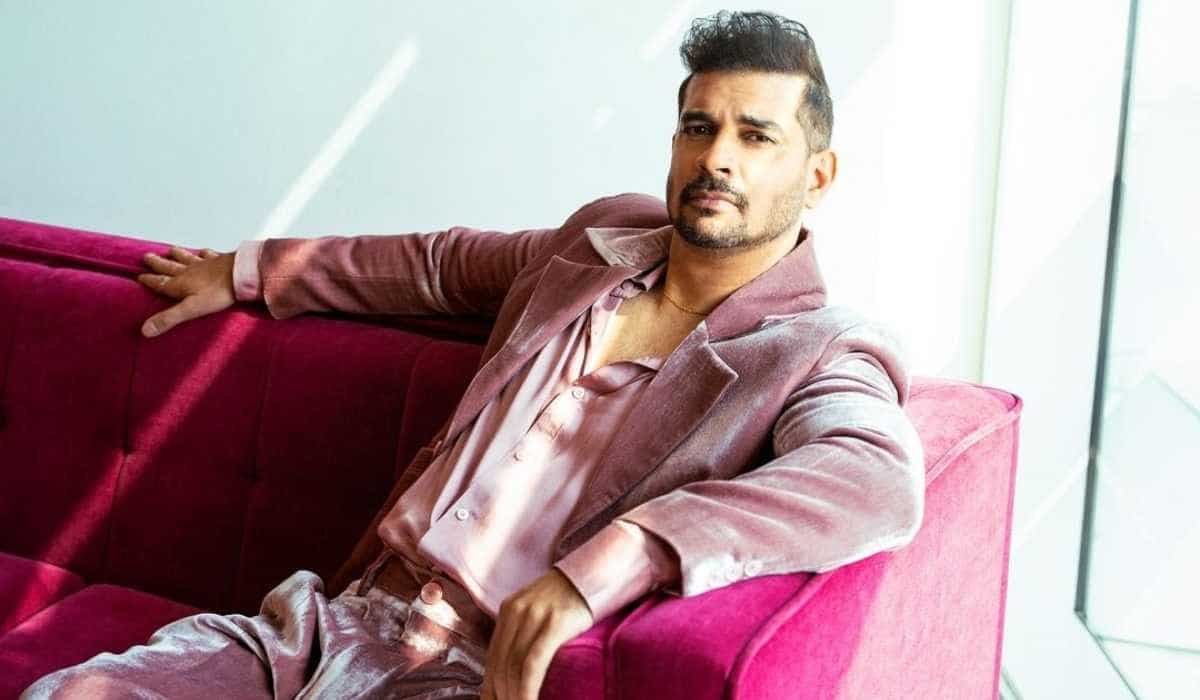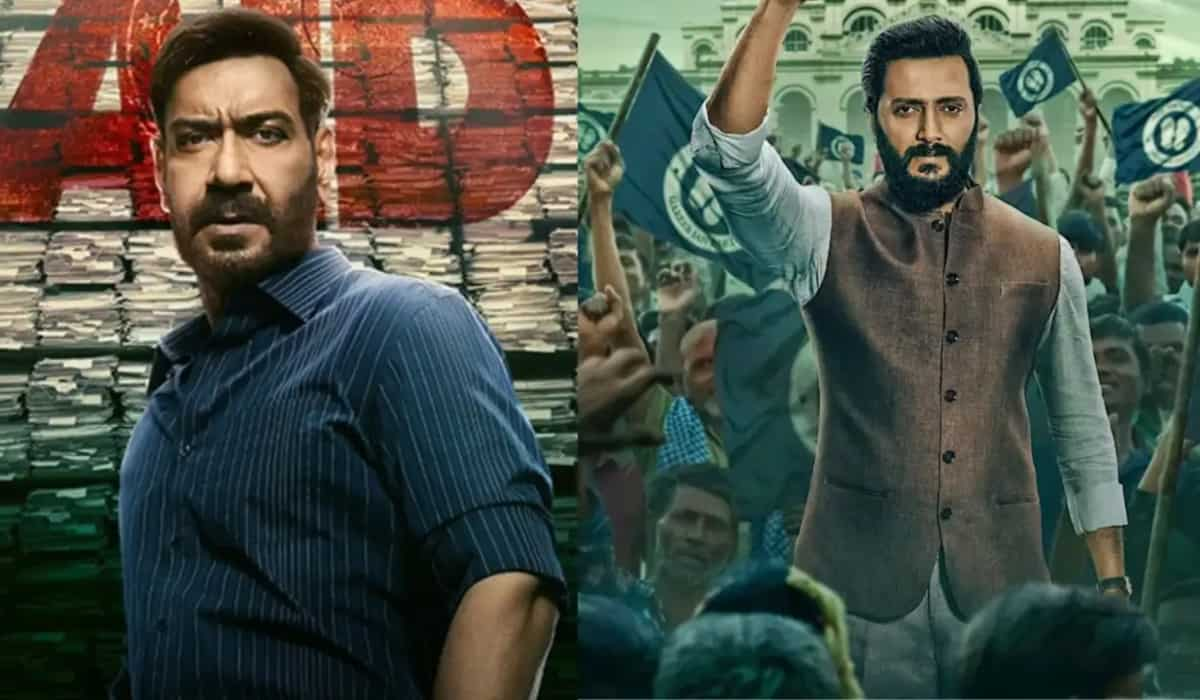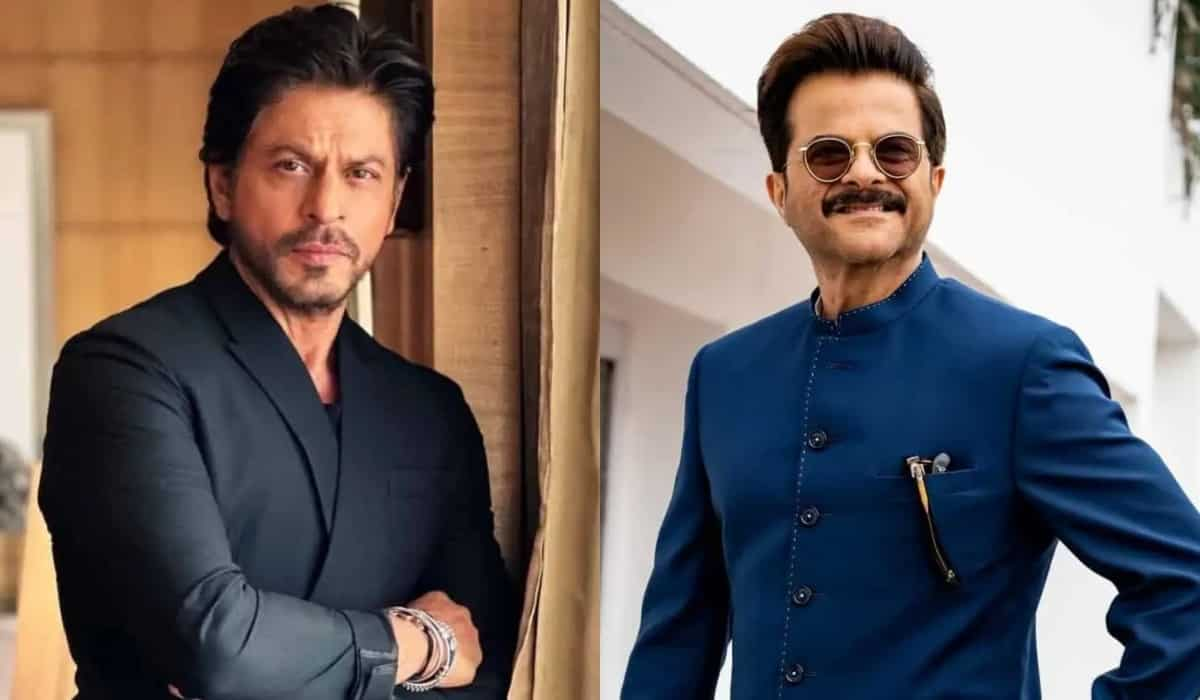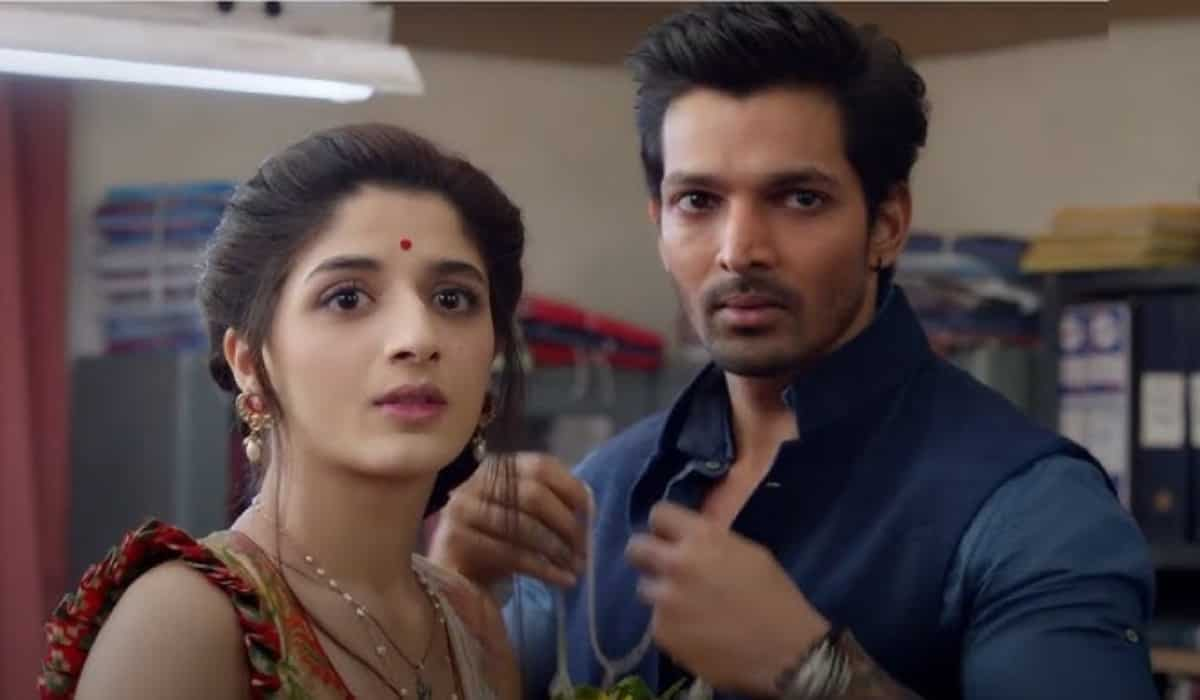
Tahir Raj Bhasin on Yeh Kaali Kaali Season 2 success: 'I was confident, but not overconfident' | Exclusive
5 months ago | 5 Views
In an exclusive chat with OTTplay, the ever-charming Tahir Raj Bhasin opens up about the whirlwind journey of Yeh Kaali Kaali Ankhein Season 2, a series that has not only gripped audiences with its nail-biting twists but also found a special place in his heart. With his signature blend of wit and thoughtfulness, the actor shares what it’s like to step back into Vikrant’s morally grey world, the emotional toll of intense storytelling, and the joy of seeing fans craft their own theories about the show. As the anticipation for Season 3 builds, Tahir reflects on the love the series has garnered and the deeply personal connection he feels to a character who’s far from perfect but undeniably human.
Edited excerpts...
What has been the most memorable piece of fan feedback you’ve received for Season 2?
For the past two years, anything that I put up on social media—whether it was for any other project or a personal photo—the first comment that I always got was, "When is Yeh Kaali Kaali Ankhein Season 2 coming?" When it was released, I was so happy that I finally had an answer for those questions. I'm sure enough, one day after the show had released, the next comment was, "Ab Season 3 kab aayega?" So I do not have an answer for that, but I'm hoping soon. But moments are just I'm really enjoying the fact that people are coming up with their own theories and their own things for Vikrant shouldn't have done this. The character maybe should have done this instead. And they're trying to decode what the possible meaning of the ending is. Could it be...? It's always encouraging and very validating when your audience is involved to that extent.
How do you unwind after portraying such intense characters? Was it easier to get into the character again after a long time?
Getting out of a character takes me about two to three weeks. This is the first time that I was also doing a season two or a sequel to something. So it was the first time that I was revisiting it. And I find that it was almost like meeting an old friend after one or two years, someone who you've known really well, but you haven't spoken to them for two years, and now you meet them again. So you pick up almost where you leave them. But what was challenging was that the stakes are all of a sudden so much higher. Right from the start in season two, it's like life or death from the minute he wakes up. And that was very challenging. And as a result, getting out of the character took me a longer time in season two, because it was a much darker space.
Did you feel any pressure knowing that there might be a "Season 2" curse as seen with many shows, or were you this time too trusting with what Siddharth Sengupta created?
I was confident, but I was not overconfident. There is always that 80% you're sure, but that 20% part of you is always uncertain, because anything can happen on the weekend of the release. And these days, audience feedback is so instant that even though OTT doesn't have a box office number, it's the critics who review it. You hear from fans on social media, and it's actually more instant than a box office number. I'm just so proud that we've not only broken but we've smashed the season two class. Because a lot of people have come out and said that not only have they liked it as much as season one, but some people actually liked it more, so that was very encouraging, and it's an absolute testament to the effort that Siddharth Sengupta has put in, including the rest of the team.
Characters like Vikrant often exist in a morally grey area. How do you approach portraying their decisions without judging them?
See, you're always taught, even in acting school and in acting classes, it will never judge your own character with your own value system. I approach it from the point of view of what Vikrant's reality is and what Vikrant's understanding of the world is. And in Vikrant's reality, everything gets justified, because he is fighting for the love of his life and to protect his family from getting affected by the acts that he has committed, and in his way of understanding, he keeps trying to do one thing: protect his family and fight for love, but that one thing gets him two steps back and further into trouble. I think what makes him very interesting to watch is that he's not James Bond; like, he has all these plans, but even for the simplest things, like how to shoot a gun or how to cry, he very often goes to YouTube, just like any other person. But in fact, a really funny moment in the show is where he wants one of the characters to run away; he says, "Aap desh chodke bhaag jao," and the character says, "Hamara toh passport bhi nahi bana." These spy thriller kinds of solutions in a real-world setting, and that's what makes it very interesting to watch. But to answer your original question, I approach it from Vikrant's reality. And from what Vikrant needs, which is to have his simple life with his love, it is the political system that he is against, and the huge power starts so that he is against that sort of thing, which forces him to put himself in a deeper suit, and he started off.
How do you perceive the shift in audience preferences toward morally ambiguous narratives and anti-heroes, especially on OTT platforms?
I think over the past few years, the trend has been across cinema and OTT—look at the kind of films that have done well in the cinema just in the past few years. The characters are in the grey, and this could be like, it could be a Jawan, or it could be an Animal. I think the reason why flawed characters are interesting is because they're imperfect, because they're not only black and white, and what the audience really relates to is the humanness in that. At the end of the day, Vikrant is a small-town boy who wants the perfect, utopian life of being with the woman of his dreams, the girl he's fallen in love with, and having a small house and a small garden and a small dog. But there are so many people in our country who have, in Bollywood, the famous one-sided love, and you feel it, and it's fighting for that one-sided love that you have, where the person you love is now married to someone else, and you're married to someone else, and that is his reality. The decisions he takes after that are what make him in the grey, or what the term is these days, the "antihero." I think it's definitely like being a violent hero whose methods are questionable but who has a heart of gold is something that is a trend, both in cinema and OTT at the moment.
But do you think that now the audience is kind of forgiving when it comes to love coming into the picture of an antihero?
Yes, and I think the audience is also very intelligent in the kind of cinema that they're watching and the kind of OTT content that they're watching, and what that results in is an audience that is understanding and forgiving as far as long as it suits the story and it goes with what the character is and where he started off. Just for example, there's a scene, it's a bit of a spoiler, so I won't give skills like there is a scene in where he enters a bathroom and he's forced to find something that he doesn't want to, he doesn't want to. It's not something that he does like a gangster. He does it like a regular person, reacting the way just an ordinary person would. So it goes with the character; it goes with the story, and the reason is to protect the person who he loves.
The show has some shocking twists. How do you ensure your reactions feel authentic when filming high-stakes moments?
When I read it, I'm beyond shocked because it is so sensational; it is so high drama, but it's also like an ode to pulp writing in 90s Bollywood, and that's the kind of high drama that I've grown up watching. The challenge as an actor is to play it as realistically as you can, because the writing is so high drama and the twists and the turns in plots are so sensational in a good way that the challenge is how do you play this in the most honest and authentic way and play it in a very subtle kind of way. So that there is no question about whether it can actually not happen. Personally, I love the directing of the show, because you can never predict when an episode begins how it's going to end.
What were some of the most challenging scenes to shoot in Season 2, both emotionally and physically?
Yes, there were a lot of the scenes that we shot in Manali at high altitude; we were shooting in minus four degrees, and that was always challenging. There were times when there was no electricity on set, so there was no heating, and I had to say long dialogue. But overall, it does the cold that you were feeling, the fact that smoking is coming out of the mouth when you're talking; it adds to the drama. It adds to the story. Overall, as far as challenging scenes are concerned, I think, as playing the lead in the show, I had a different dynamic with every character, like my dynamic with Akhiraj (Saurabh Shukla) is different from the one with my father (Brijendra Kala), which is different from the one with my sister (Hetal Gada), from with Shikha (Shweta Tripathi), and with Purva (Anchal Singh). And there are some scenes that are written where you are interacting with four or five characters in the same room at the same time, and that was very exciting to play, and it was challenging at the same time.
How has your journey in the industry evolved since your debut, and where does Yeh Kaali Kaali Ankhein stand in your career trajectory? People are more attracted to seeing you in the grey space.
I think, with my journey and what Yeh Kaali Kaali Ankhein gives me, it is the luxury of an entire character arc where you see the beginning of how this character story began. Who was he as a child, and what were his influences? Who was his college lover? And so there is an understanding that the audience has. And like you said, he's not a bad person; it's the situation. He's an ordinary guy in an extraordinary circumstance. And there's a really good dialogue that Vikrant says in a monologue, ultimately where he says that ultimately it doesn't matter whether you took the decision on your own or you were forced to take a decision; the world will judge you only on the basis of what they see. And another really nice line, which translated means that no one is born bad, that circumstances change them, and that is actually the journey of an antihero. I feel it's a fantastic art to play, because whether you look at great stories that were between industry, whether you look at something like Shakespeare's Othello or closer to home, like our own mythology, there are always shades of grey that are explored, and that's what makes for fascinating characters.
If you could rewrite Vikrant’s ending, what would it be?
If there was a happy ending and they got married to Shikha, then the show would end in 15 minutes. I really wouldn't want to change a single word, because Sidharth Sengupta is so unpredictable. It is that unpredictability that makes it exciting to play. But in my heart, I really want Vikrant and Shikha to get together because I know how much the audience has DM-ed me and texted me to say that. That is one of the best fan moments that you have: when people are giving you solutions, if you would have called her over here, then you would have possibly been able to meet. So, of course, I want that to happen, but there has to be an Agneepath that he has to cross.
If given the chance, what aspect of Vikrant’s character would you like to explore further in a potential Season 3?
I think that at his heart, he's a romantic, and he's an idealist, and at the moment, because he's in a bad circumstance, you've only seen him, seen him reacting impulsively, but which is an aspect that you can see in his eyes, that he's a romantic and that he really feels for Shikha, but visually, it hasn't been. I cannot say for sure if something will happen in the future or not, but this is an unseen aspect of it, and it is there in the story, but visually it isn't there.
I hope the Season 3 announcement is made soon and it's released sooner than we expect.
True, I agree with you that we shouldn't wait for that long. Actually, the platform takes about one month before they decide whether season three happens or not. But we do have our fingers crossed.
Read Also: Pushpa 3: Vijay Deverakonda to play villain in Allu Arjun’s film? Here’s the buzz
HOW DID YOU LIKE THIS ARTICLE? CHOOSE YOUR EMOTICON !
#




















